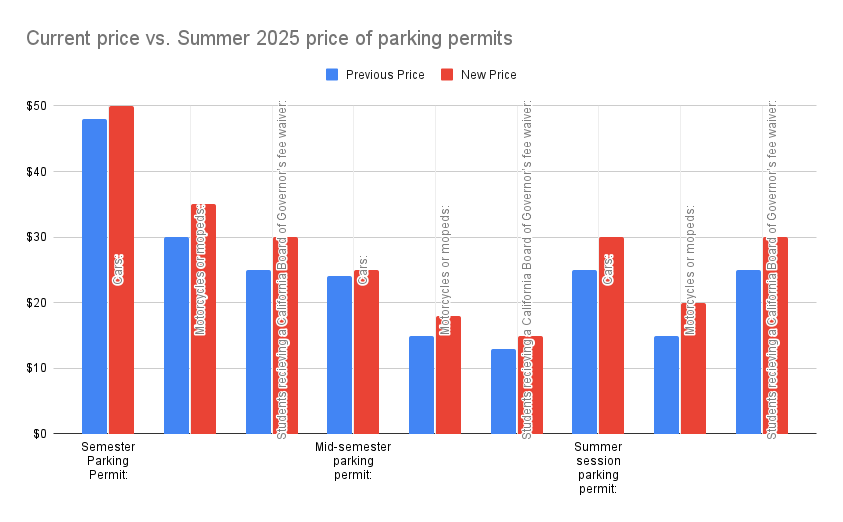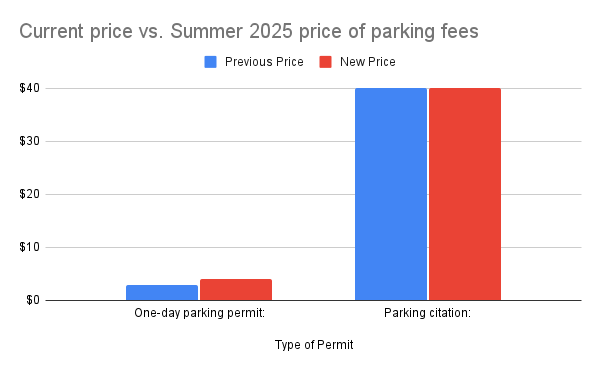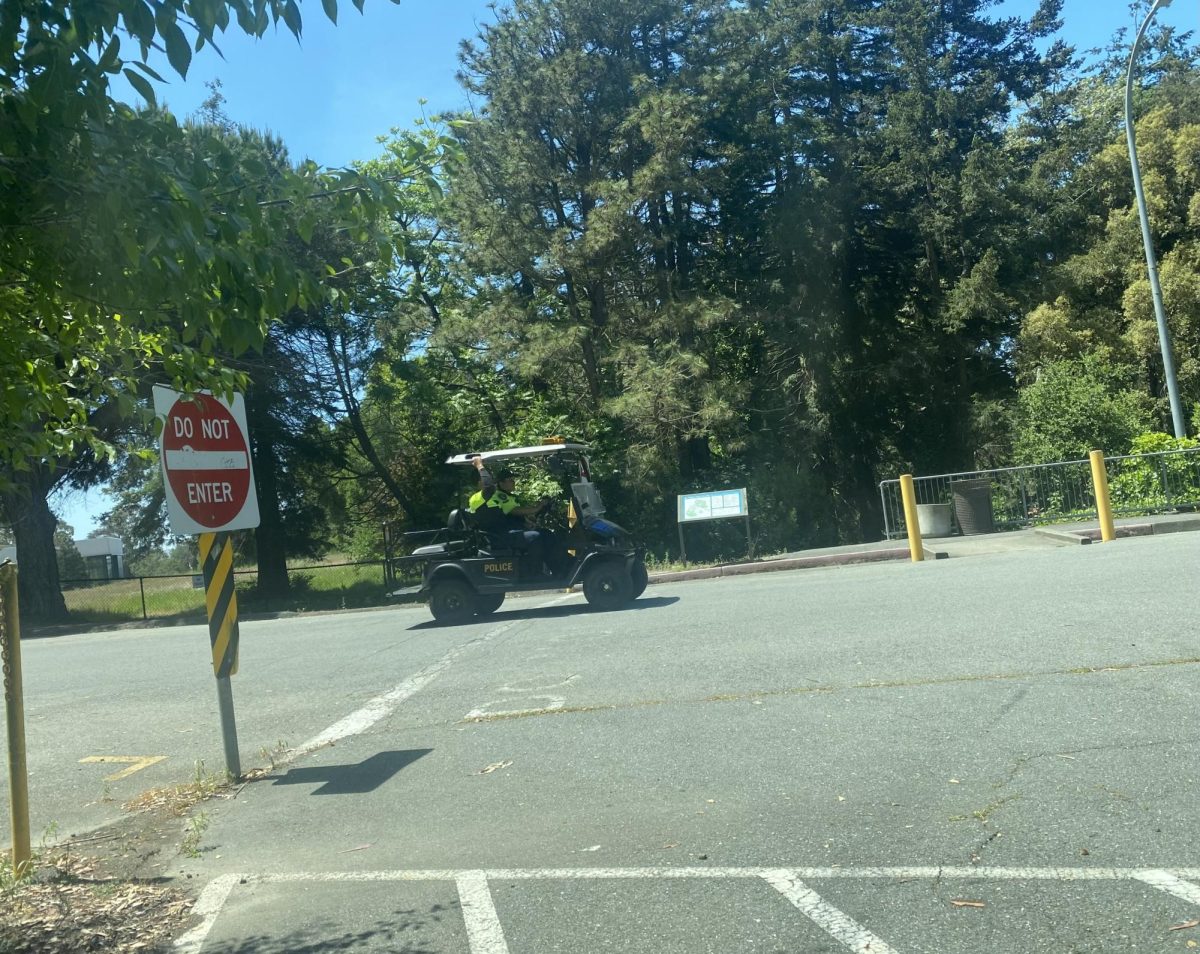On April 16 the Contra Costa College district (4CD) Governing Board voted in favor of increasing the price of semester, mid semester, summer session and one-day parking passes across the district. The upcoming change in parking service fees has come amongst budget adjustments and reductions within the district and will begin to take effect during the Summer 2025 semester.
The increased prices for the parking permits varied between $1-$5 more based on the semester and type of vehicle. The most significant price increase is with the one day parking permits, which increased by 33%, and the summer sessions permits for motorcycles and mopeds, which increased by the same amount. The only exemption from the district’s parking fee increases are parking citations, which will remain at $40.


According to 4CD’s Associate Vice Chancellor, Chief Financial Officer Dr. Tony Wold, the changes for the parking fees are long overdue. Wold explained that the revenue gained from parking service fees has taken a large hit due to the increase of hybrid and online classes within the district and no longer creates enough revenue to regulate the cost of parking maintenance.
“Its been more than 10 years since the board has visited parking fees,” explained Wold during the Governing Board meeting. “Over this time period the amount of fees that we receive is not equal to the amount of cost for the staff that are already in place in the maintenance of parking.”
4CD is expected to experience a plateau in funding growth due to rising interest rates, a slowing economy and tariffs. Aside from increasing the parking pass fees to make up for the loss in funding, Wold also encouraged the governing board to re-evaluate things like travel, conferences, hourly and professional experts and vacancies in staff.
In the past the district has been transferring additional funds from one time grants or alternatively using general operational funds to make up for the insufficient parking revenue. Between the years of 2020 to 2023 parking fees were waived for students and the district was given a grant by the Higher Education Emergency Relief Fund (HEERF) to help cover the costs.
The increase in service fees are only part of the districts’ larger effort to combat the district’s budget deficit. The change in parking fees would increase the revenue from parking by almost 50,000 dollars per year, and while it wouldn’t be enough to entirely fix the absence of 4CD’s previous grants, it would still help to ensure that students and staff will continue to have the opportunity to access the same programs and services.
“It’s not going to erase the deficit in fund 12 (Restricted General Fund),” said Wold during the governing board meeting. “But again, as we are talking budget we want to look at all aspects and doing the right pieces so we are recommending this fee increase.”
Even though the new parking prices remain well below the $72 fall and spring and $35 summer semester maximum parking fee set by the district Education Code Permissions, some feel that the increase in fees is still another addition to the already steep cost of education.
“I think right now they’re just kind of raising everything so it’s kind of inevitable,” said Jacky Hernandez, a Middle College student at Contra Costa College. “But I also think it should not keep raising, especially for students since we do need a lot of help and we do have a lot of stuff to spend on.”
Associated Student Union President Yasmine Al-Omari also stated her disapproval toward the increase in parking fees and explained that she learned about the upcoming change only a month before the Governing Board voted.
“I wasn’t notified of the increase in parking permits until about a month before the district planned to implement them,” said Al-Omari in an email. “Although Associated students are considered a voting member within Shared governance, both at the college and district, it’s disheartening that a change like this was brought to my attention so last-minute.”
Al-Omari expressed her concern about how the rising parking rates could hinder accessibility to education, and how this change could possibly interfere with EOPS, DSPS and other resources that are made available to students.
“From an economic standpoint, if permits are increased, students most definitely will have trouble getting to class,” said Al-Omari. “Higher education needs to stay accessible—if students can’t even afford to park or get to classes, we are limiting that accessibility.”
If you have questions about parking permits, violations or accessible parking you can access the 4CD campus permit website to learn more information.




